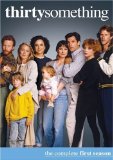| Reviews & Columns |
|
Reviews DVD TV on DVD Blu-ray 4K UHD International DVDs In Theaters Reviews by Studio Video Games Features Collector Series DVDs Easter Egg Database Interviews DVD Talk Radio Feature Articles Columns Anime Talk DVD Savant Horror DVDs The M.O.D. Squad Art House HD Talk Silent DVD
|
DVD Talk Forum |
|
|
| Resources |
|
DVD Price Search Customer Service #'s RCE Info Links |
|
Columns
|
|
|
thirtysomething: The Complete First Season
"...you said, 'This is all fine and good, but if there were an award for the most annoying show on television, we would probably win that, too."
- creators Ed Zwick and Marshall Herskovitz
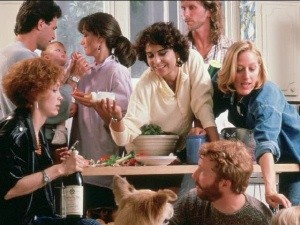
The Series
I was always a little annoyed with e.e. cummings. Just get over your capitalization-shunning self, already! I'm sure he would have been a big fan of the equally lowercase loving thirtysomething, another moniker that suggests a slightly inflated sense of importance--and a series that provokes passionate responses, both good and bad.
In an April 8, 1991 article from Time magazine, the "Death of Yuppiedom" was declared. Is it a coincidence that just six weeks later, thirtysomething aired the final episode in its four-season run? The label had already taken on a distasteful connotation in popular culture when the series debuted in 1987, and Black Monday soon pushed financially secure young urban professionals from the upper middle class into a tizzy. It was enough to annoy the rest of us even more, these rich kids given more fuel for their angst.
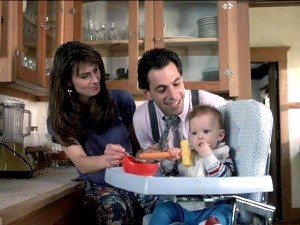
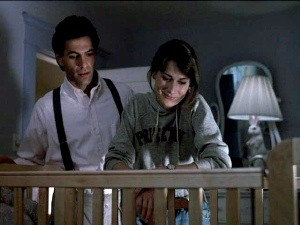
thirtysomething tries to suggest it isn't about yuppies--the main character has a nightmare about the label in the third episode ("I'm not a yuppie!")--but it's not kidding anyone (one word: Evian). I had never seen a single episode of the series until getting this set for review--I was 13 at the time it first aired, and far more concerned with ABC's Dynasty and Moonlighting to care about this more mature show. But considering that Once and Again--another creation from Marshall Herskovitz and Edward Zwick--is one of my all-time favorite shows, I figured that thirtysomething would be a slam dunk for me. After all, I'm thirtysomething now--and have plenty of worries about the meaning of life and just what the heck I want to do.
But I'm single, I don't have kids and it's 2009. And as I started to wade through this freshman season, I quickly realized how detrimental those elements were to enjoying this show. thirtysomething was aimed at a very specific audience--successful Baby Boomers approaching middle age who were increasingly afraid they had become boring. Case in point is Episode 20, which features two main storylines: a 34-year-old professor worrying about getting tenure, and a successful City Hall employee worrying about whether she should buy her apartment in her soon-to-be co-op building. (I call it the "Eye Roll Episode"). It's one of many moments that made me laugh, along with a slew of lines that further epitomized the show's target audience (Exhibit A: "Where are my lucky argyle socks?").
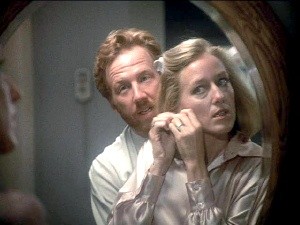
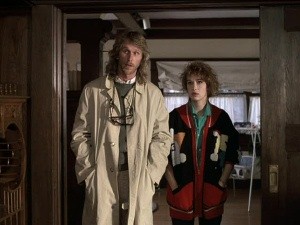
thirtysomething's ratings weren't remarkable (it never cracked the top 20), but its success with certain demographics brought in enough advertiser attention to keep it thriving. It also struck a chord with Emmy voters, who voted it Best Drama (and three other accolades) in its first season. But it was also accused by some critics of being self-indulgent (ding! ding!), and--to a degree--I fall more into that category. For me, the show doesn't come anywhere close to the genuine emotion and honesty of Once and Again, a show that unfolded far more naturally and was a lot easier to warm up to.
The show is often too obvious with its intent, and its inhabitants sometime feel more like constructs than characters. And while the acting is mostly admirable, a lot of it comes across a little too self-aware--many scenes gave me that staged, community theatre feeling, especially when the three hombres reminisce about their youth. (To be fair, we find out in the bonus material that it was an intentional choice; I still don't like it.) Before all of you rabid fans call for my head, know that I recognize and appreciate how important the show was--not only for speaking to many viewers but also for advancing the medium and representing a snapshot of a place in time. It dealt with serious adult issues about love, family and relationships in a mature way, something severely lacking in 1987. Much of it still holds up today, but it's still very much a product of its time.
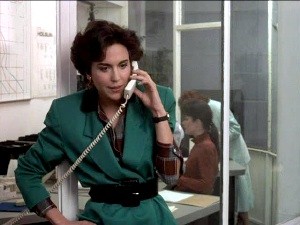
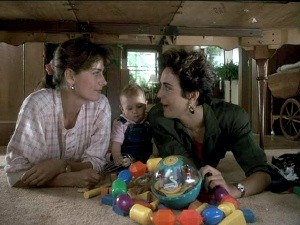
But given all of the great shows we've had over the years and today, thirtysomething isn't nearly as impressive now as it was then. And it took me a long time to start caring about these people--it wasn't until Episode 11 that I started to actually enjoy the show. After a series of uneven episodes that prompted more frustration than inspiration, it finally strung together some strong episodes that showed me what all the fuss was about. Until that point, I was unimpressed with all of the whining and complaining--and trust me, there's a lot of it. It starts with the pilot, where the first 10 minutes alone had me begging for mercy:
- "Am I allowed to have a relationship with someone who wears polyester shirts?"
- "$278 for a stroller?!"
- "I'm too fat! I keep promising Michael I'll go to the gym..."
- "No Raisin Bran?! What am I gonna do?!"
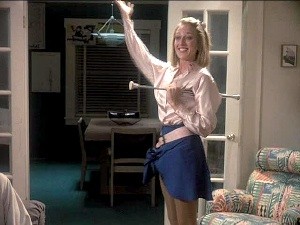
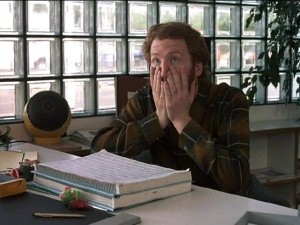
And that brings me to the seven characters-- a high-strung, stressed out bunch that revels in being dramatic--inhabiting this Philadelphia-set drama: Penn graduate Michael (Ken Olin) is married to Princeton grad Hope (Mel Harris), who recently gave birth to their first child. She abandoned her burgeoning writing career to be a housewife while he runs an ad agency with friend Elliot (Timothy Busfield), who has two kids and an unhappy marriage with wife Nancy (Olin's real-life wife Patricia Wettig)--who is too busy being a mom to act on her dream of being an artist. They're joined by the three singles: Hope's best friend Ellyn (Polly Draper) has an impressive job at City Hall, while Michael's cousin--photographer Melissa (Melanie Mayron)--used to date his best friend, professor Gary (Peter Horton).
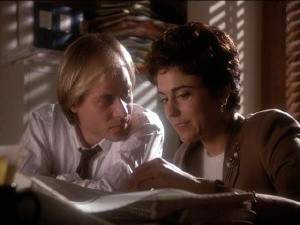
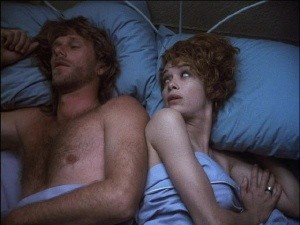
While this is an ensemble drama, it takes a while to show it--the stories focus primarily on Michael and Hope for the bulk of the season's first half (another decision we learn was intentional in the bonus material), leaving the rest of the cast to flounder in either unlikable roles or inconsequential stories. That's one of the biggest mistakes Season 1 makes, and for some new viewers it may be too much to overcome. Michael worries about money, failure and missed opportunity while Hope worries about a missed career, while both begin to wonder if the spark will ever come back in their marriage:
Michael: "This is just not according to plan."
Hope: "Who's plan? Our lives are so full now...we have a wonderful baby that we love so much and who needs us."
Michael: "Well then why do I feel so terrible? God, you know, I hate people who talk like this. I know we're lucky. It's just that I have been so angry, and--I don't know, embarrassed--because I feel like a 2-year-old, and you're not paying any attention to me!"
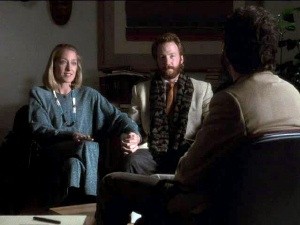
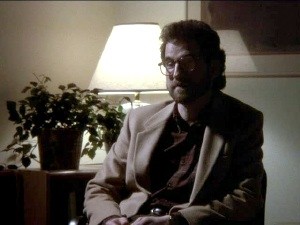
We don't get to really know Elliot and Nancy until Episode 11 ("Therapy"), the second episode I enjoyed in full (along with Episode 7) where we finally see some substance behind their bickering. Elliot worries about sex (we learn in the pilot that he has already had an affair), money, failure and missed opportunity while Nancy worries about a missed chance for a career. Both begin to wonder if the spark will ever come back in their marriage. It's a point the two best buds like to belabor:
Elliot: "Mike, what's a matter with you?"
Michael: "Nothing's a matter...I'm not allowed to be totally depressed?"
Elliot: "Hell no! If we're both totally depressed, who's gonna pretend to run the company?"
Michael: "You know what I don't understand? There's like a normal level of misery in happy marriage, right? That's just life. How do you know..."
Elliot: "...when it's an abnormal level of misery? I have no idea..."
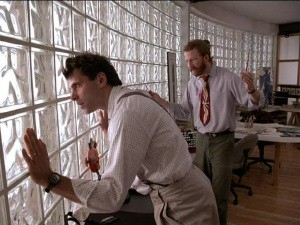
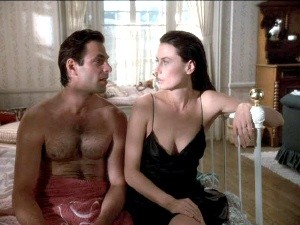
Ellyn starts out annoying--she feels neglected by Hope and is jealous of baby Janey, one of many conflicts given oddly quick resolution--but slowly becomes more likeable and is given more to do as she starts up a tryst with her boss. Draper is also given the funniest lines: "Oh my God...3 a.m.?! The only thing I'm up with at that time is a spastic colon!" (Although Hope's "You'll love him...he's like Dr. Seuss with a speculum!" is right up there, too.) She spends the bulk of her time obsessing about being single and wondering if she'll ever have a family to balance with her career. Meanwhile, Melissa spends the bulk of her time obsessing about being single and wondering if she'll ever have a family to balance with her career.
But unlike with Ellyn, I was never able to warm up to Melissa--and not just because of Mayron's odd, exaggerated accent, which too often wins the attention war with her words. More than any other character, Melissa goes BSC (bat shi* crazy) way too much--including an argument with Michael after she shows some highly unprofessional behavior and her immature handling of her boyfriend's young daughter (Kellie Martin!), scenes made all the more funny by her constant proclamations of wanting to be a mother. (Other guest stars include Shirley Knight--who turns in an Emmy-winning performance as Hope's mom--along with Dana Delaney and Faith Ford).
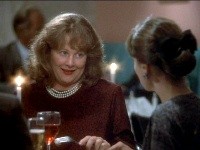
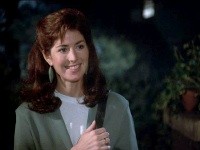
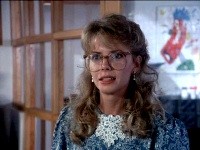
As for Gary, he remains the most underdeveloped of the bunch (maybe it's because Horton directed a few episodes?). He's got long hair ("Make one Bjorn Borg joke and I'm gonna hit you with this turnip!"), wears an earring, likes to do sit-ups and worries about being single, failure and missed opportunity. Not even the Gary-focused "Tenure" episode late in the season does much to change that, which is a shame because he's the most fun and likable character--at least when he isn't making boneheaded movies like dating Mike's former gal pal (Episode 19), who also goes out with Elliot (?!) in one of the more head-scratching story arcs.
Another element that I wasn't expecting--and that doesn't quite work most of the time--is the show's frequent use of comedic fantasy sequences where the characters' dreams, fears and nightmares are briefly brought to life: Michael puts himself on trial ("This man is merely a dupe of the imperialist yuppie elite!"); Hope envisions all of the adults as crying babies; Nancy's son envisions himself as a prince in the woods where Melissa is a fairy; Michael has three trolls that represent fears; Melissa's anxieties are spoken to her on photo sheets; Gary is a knight on a horse...and that's just a small sampling.
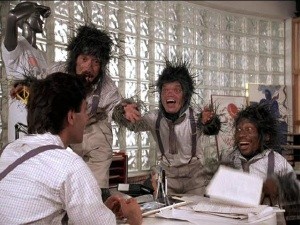
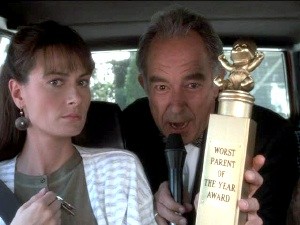
When the bits are quick, they sometimes work. When they're long--or when one show relies on them too much (hello, Episode 6!)--they lose their effect and take away from the more realistic feel the show aims for. The show gets a little too experimental too quickly, and it sometimes clashes with the heart and soul the series projects, taking us out of the more relatable world. (While I love thrillers, the Hitchcock-influenced "South by Southeast" comes far too soon in the series and feels out of place.)
But I don't want to get too down on thirtysomething. Even with its faults, it's still representative of its time and an important show for its era, one that helped dramas evolve and mature from both a style and substance standpoint--and one that dealt with problems relatable to all of us, yuppie or not. And despite my less-than-glowing reaction, I still recognize this is a high-quality effort with its heart in the right place. The show has plenty of genuine depth and honesty, particularly in the second half of the season.
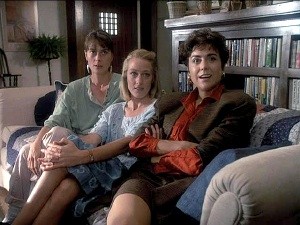
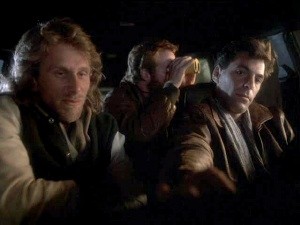
When dealing with the very human conflicts we face with friends and loved ones--brought upon by seemingly mundane, everyday events and conversation that many primetime shows would deem too boring--it soars. The show also rises to the occasion when it contrasts the different ways men and women feel, whether interpreting and reacting to information or communicating with each other (something that hasn't changed in the last 22 years). Another episode that deals with loss is truly touching. And to be fair, yuppie or not we all get annoying and immature every day...why shouldn't it be reflected on TV? For anyone that has ever been in a troubled relationship--married or not--the conflicts explored here are sure to strike a chord. Wettig in particular shines as she's given more screen time to voice her frustrations as her marriage starts to crumble (she and Draper--who excels with the comedic material--are my favorites).
Overall this is an uneven season with a slow start and some mistakes in the latter half. But while I wasn't as connected to these characters as I hoped, thirtysomething still has a lot going for it--and if nothing else is one of those shows people remember (for better or worse) as being representative of a culture, of a time and place in history that held meaning for many viewers. For that alone, this is worth a look.
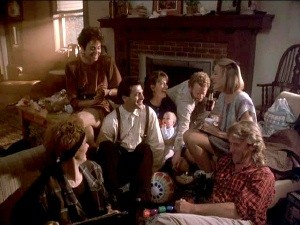
Note: Reports have indicated that part of the holdup with the DVD release was to acquire the music rights. I have no reason to think anything here has been changed (the box has no notation), but being a tad out of my era with the song selections, I probably wasn't as aware of (and moved by) them as others could be.
Episode Guide
The 21 episodes--each approximately 47 minutes are spread across six discs:
1. Pilot (aired 9-27-1987) Hope and Michael Steadman are still adjusting to parenthood while struggling with money problems and best-friend crises.Includes audio commentary with creators Marshall Herskovitz and Edward Zwick.
2. The Parents are coming (aired 10-6-1987) Hope's anxiety over her parents' impending visit taxes everyone's patience.
3. Housewarming (aired 10-13-1987) Michael and Hope race to renovate their crumbling home for a huge housewarming party.
4. Couples (aired 10-27-1987) A night out with friends degenerates as Nancy and Elliot's marital woes become apparent.
5. But Not for Me (aired 11-3-1987) Gary and Melissa rekindle their affair; Michael and Hope's first date in months is a disaster.
6. We Gather Together (aired 11-17-1987) Hope and Michael plan a quiet Thanksgiving but learn friends are counting on being invited.
7. Nice Work if You Can Get It (aired 12-1-1987) Facing a deadline, Michael and Elliot wrestle with a creativity block; Ellyn develops a crush on an associate.
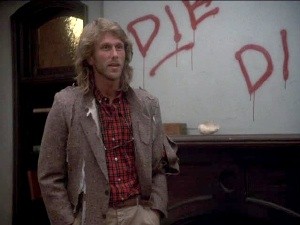
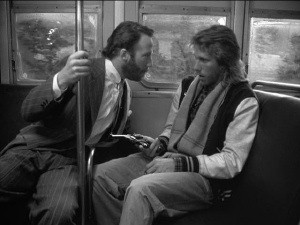
8. Weaning (aired 12-8-1987) Sensing baby Janie's decreasing dependency on her, depressed Hope decides to go back to work.
9. I'll Be Home for Christmas (aired 12-15-1987) Michael and Hope argue about whether their infant's first holiday should be Christmas or Hanukkah. A famous photographer shows interest in Melissa's work. Includes audio commentary with actors Mel Harris and Melanie Mayron.
10. South by Southeast (aired 1-5-1988) A Hitchcockian nightmare emerges when Gary falls in love; as the romance progresses, h ebegins receiving a series of threats against his life.
11. Therapy (aired 1-12-1988) Elliot and Nancy seek professional help for their troubled marriage, and Michael finds it hard to keep a secret. Includes audio commentary with actors Timothy Busfield, Ken Olin and Patricia Wettig.
12. Competition (aired 1-19-1988) Michael's jealousy is aroused when an important client makes it clear he prefers to work with Elliot. Meanwhile, Hope and Nancy try to come to terms with computers. Includes audio commentary with writer Joseph Dougherty.
13. Separation (aired 1-26-1988) Elliot temporarily moves in with Michael and Hope after separating from Nancy.
14. I'm in Love, I'm in Love, I'm in Love with a Wonderful Gynecologist (aired 2-2-1988) The newfound friendship between Ellyn and Melissa is jeopardized when they begin competing for the attention of the same man. Includes audio commentary with director Scott Winant.
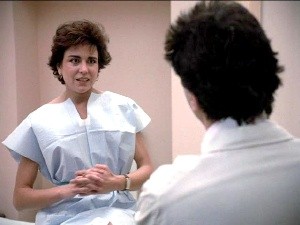
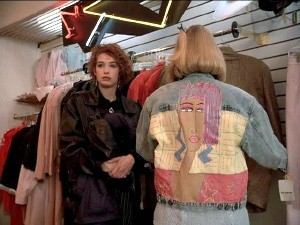
15. Business as Usual (aired 2-9-1988) Michael's hopes for a joyous reunion with his father are destroyed when he discovers the real reason for his visit.
16. Accounts Receivable (aired 3-1-1988) A rocky relationship between Michael and his brother Brad is further strained when Michael learns the family business is almost bankrupt.
17. Whose Forest is This (aired 3-15-1988) Nancy and Elliot's separation takes its toll on their son; Elliot prepares for a blind date with a chiropractor. Includes audio commentary with actor Timothy Busfield and writer Richard Kramer.
18. Nancy's First Date (aired 3-22-1988) Melissa's burgeoning romance slows when she learns her love interest doesn't want any more kids; Nancy has her first date since the separation. Includes audio commentary with director Ron Lagomarsino.
19. Undone (aired 4-12-1988) Michael's old girlfriend from college pays a visit. Includes audio commentary with writer Joseph Dougherty.
20. Tenure (aired 5-3-1988) Gary evaluates the fate of his academic career as he undergoes tenure review as the college; Ellyn learns her building is going co-op.
21. Born to Be Mild (aired 5-10-1988) Ellyn and Woodman's weekend is ruined when they are forced to babysit Janey. Includes audio commentary with actor Mel Harris and director Ron Lagomarsino.
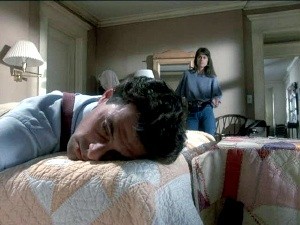
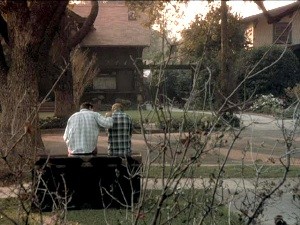
The DVD
Video:
Presented in their original full-frame format, these episodes look standard for Shout's older TV releases--fans will be happy as heck to finally have the show on DVD, but the transfer isn't going to impress anyone. Colors are dull and dark, grain is copious and there's no sharpness, while some minor dirt also appears.
Audio:
Like the video, this 2.0 track is just average. And like other older Shout releases, there's a limited range of volume that works: too little and you can't hear, too loud and the white noise static intrudes. I was slightly more frustrated with this aspect of the transfer--in some spots, bits of dialogue (nothing extensive) were too low and mumbling to be easily understood, causing minor irritation and slightly detracting from some exchanges and scenes. Again, nothing major, and not nearly enough to cause any concern.
Extras:
Shout has done a nice job with the extras here, something apparent before you even pop the discs inside: the accompanying booklet/episode guide includes three nice essays. The bulk of the bonus materials comes on the sixth disc, which breaks down 130 minutes of cast and crew interview footage (in full frame video) into segments. Things get started with A Conversation Between Marshall Herskovitz and Edward Zwick (32:01), who talk to each other about the show's creation and progression, including segments on the show's inspiration, pitching the concept, casting (the two were friends with many people they hired), creative control and the reaction of the press. It quickly becomes apparent that many of the duo's real-life fears about failure--even about the show, which they were constantly convinced they had ruined (it took them a long time to fall in love with it)--were reflected through Michael and Elliot.
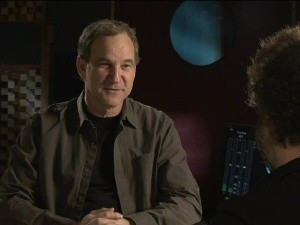
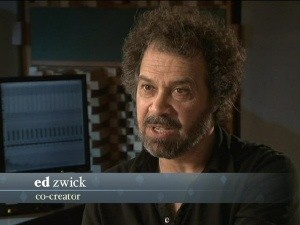
"It's important to say we did not want to do a television series. We literally said to each other, 'What could we do that we would like if we had to do it, but would be certain to fail?'" says Herskovitz (who appears as a shrink in the "Therapy" episode). "When I look back at the episodes, what I'm most proud of is that so many of them were meditations on a theme." Adds Zwick: "Like so many things, it's finally an expression of the issues of our lives...(not) just the obvious ones of having children and having jobs and trying to deal with ambition and sexuality--obviously those things were there--but it was about paying attention to those deeper chords of our experience in life."
From thirtysomething to Forever is broken into two parts: "Beginnings" (29:57) and "The Following Years" (14:50). All of the principal cast and crew--including Paul Haggis, now an acclaimed feature film director--share their thoughts on the show. "The beauty of thirtysomething was the reality of it, was the actual day-to-day reality," says Mel Harris. "It wasn't a cop show, it wasn't a legal show, it wasn't a doctor show, so it didn't have that franchise to rely on...it almost created the franchise of characters and relationships."
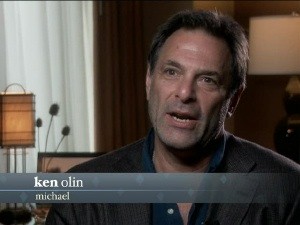
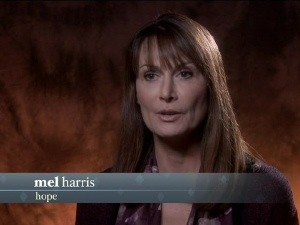
The segment expands upon some of the points touched upon in the conversation between Herskovitz and Zwick, including the reaction to the pilot episode and the creators' insistence on having creative control (listen around the 25-minute mark to find out the one line deleted by ABC, a move that angered many). Participants note that the show thrived by fostering a communal culture that relied on creativity and inventiveness, and we learn that its theatrical tone was intended: Herskovitz and Zwick hired theater directors who knew how to work with actors because this was a performance show about detail and character, notes director Ron Lagomarsino. Adds writer Joseph Dougherty: "Almost everybody who came on the show was doing something for the first time, and that meant nobody came in with any preconceptions, nobody came in with any bad habits, and everybody looked to Marshall and Ed for their inspiration."
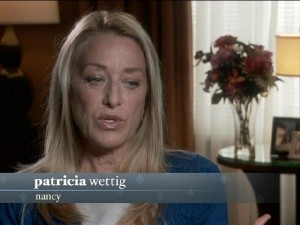
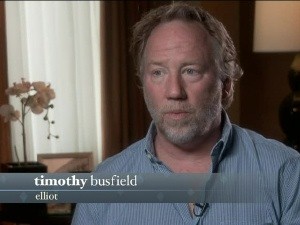
Contributors note that the show went against the grain and aimed for deeper emotional truths that were rare for television at the time, resulting in a truth that wasn't heroic. Many of the story elements came directly from the personal experiences and fears of the cast and crew. "What was breakthrough was being allowed as a writer to search your depths and let that out on the page and not codify or modify it for what was acceptable at that time to be on television, to just go deeper," says writer Liberty Godshall (Zwick's wife).
If you are new to the series, you may want to avoid the spoiler-heavy second part--it ruins a few major storylines. It also touches upon the creators' voluntary decision to step away for the show and end it, something rare for what was still considered a hit series.
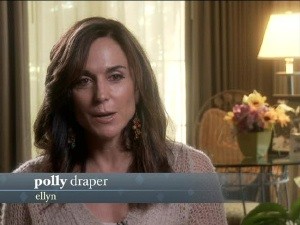
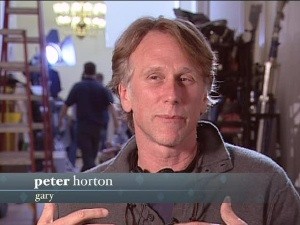
Character musings (which also include spoilers for future seasons) are also broken into segments for couples and singles: Michael and Hope (9:47), Elliot and Nancy (9:54) and Gary, Melissa and Ellyn (10:44). Each starts with the actor providing a voiceover that describes their character, followed by all of the actors discussing the strengths of each other's work. It's most fun listening to Patricia Wettig, my favorite of the contributors, talk about husband Ken Olin and how Michael broke the mold for a leading man, while Harris also talks about the criticism some women's rights proponents had for her character. Draper notes how unique the characters were for the time: They were complex and exhibited a wide range of qualities--some good, some bad--that made them hard to easily label. (We also learn that in the pilot episode, the Melissa character was initially written to just be an ex-girlfriend of Gary and not Michael's cousin).
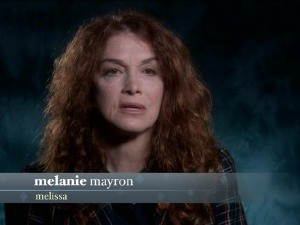
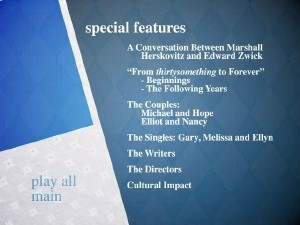
From there we go behind the camera for crew profiles that focus on The Writers (5:38) and The Directors (6:34). It's most interesting to learn how certain writers wrote for certain characters, resulting in unique relationships between the two that helped foster more organic storylines and performances. This was a filmmaker-driven show, a new approach to television that also showed up in its shooting style--which abandoned the typical "master shot/medium shot/close-up" technique in favor of something more fluid and natural, with longer one-shots teasing viewers so that close-ups would have more impact. The second segment also expands upon how the cast took on directing duties, something touched upon elsewhere.
The final segment--and the most entertaining one--looks at the show's Cultural Impact (9:44), which relates how thirtysomething influenced the medium in terms of style and advertising demographics. While it wasn't a big ratings hit, the show's success with rich young viewers was noted in the commercials ("We sold a lot of diapers and we sold a lot of cars," says Dougherty). The segment also explores the "yuppie" label (some contributors argue it was unfair, some say it was warranted) and how it had a negative impact on the show: "To call it a yuppie show was certainly meant to be an insult," says story editor Richard Kramer. "It was the opposite...I don't think that word ever came up with us, and we sort of looked at yuppies, you know, aghast." (Adds actor Melanie Mayron: "'Skinny white people from hell' is how one reviewer referred to us...")
Zwick isn't as bothered by the criticism: "A certain number of older people and journalists looked at us as we imagined ourselves the first generation ever to have children, the first generation ever to have to deal with infidelity and the loss of parents and all of those things as if this was the first time it had ever happened. And they were rightly jaundiced a little bit in their reaction to say, 'Oh come on...just get over yourselves.'"
Also included are an impressive set of audio commentaries on nine episodes (see Episode Guide above for details) with a variety of cast and crew members. What's so nice about these--as with the rest of the interviews here--is that a wide range of cast and crew are presented, making for fresh perspectives throughout. They look at things from different angles, making for an entertaining listen. No matter what you think of the show, you can't deny the passion its cast and crew had while making it--and the love they have for it now--something that comes across in these commentaries and the rest of the extras. Trailers for other Shout releases are also included.
Final Thoughts:
I wasn't enamored with thirtysomething, a show that fell far short of my Once and Again love. This is very much a show of its time, aimed at a specific demographic and not as universally relatable as it could be. There's lots of whining (oh, so much whining!), and it takes a while to warm up to these characters. But for all its faults, the series still hits many emotional truths when dealing with relationships, loss and the everyday fears we all face in life. But even more importantly, the show helped change the style and substance of television drama. Regardless of your opinion on the content, you can't deny thirtysomething's influence and importance--and whether you're a yuppie or not, this is a time capsule that perfectly encapsulates part of our culture. Shout also has to be commended for doing such an outstanding job with the extras here, which heavily boost the value of the package. Recommended.
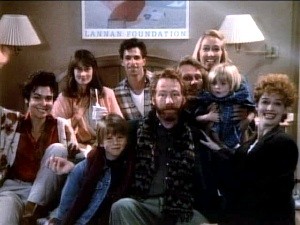
|
| Popular Reviews |
| Sponsored Links |
|
|
| Sponsored Links |
|
|
| Release List | Reviews | Shop | Newsletter | Forum | DVD Giveaways | Blu-Ray | Advertise |
|
Copyright 2024 DVDTalk.com All Rights Reserved. Legal Info, Privacy Policy, Terms of Use,
Manage Preferences,
Your Privacy Choices | |||||||









